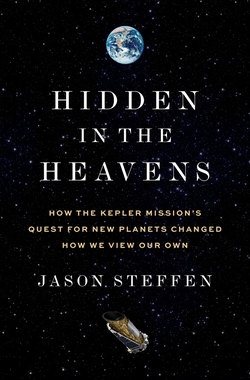Yesterday’s brief and unplanned exercise in ‘liveblogging’ was caused by an odd discovery: the only way for this observer to track the New Horizons launch was through the Internet. With over 200 channels available through cable television, I found that channel surfing through all of them yielded not one with live NASA coverage. Now ponder this. Centauri Dreams is based near North Carolina’s Research Triangle Park, with three major universities within easy driving distance. The woods are full of PhDs, the area priding itself on high tech.
With all these resources, there was not a single cable channel that could be devoted to the first mission to Pluto/Charon ever launched. You can imagine what kind of fare was available on many of the channels that were available. Around the same time, I also noted the slowdown in NASA servers as the launch progressed and received e-mails from people who were having trouble accessing NASA TV. Thus the attempt to post updates on the launch holds yesterday, although it seems absurd to be posting breaking news on a site devoted to research. We are, after all, surrounded by digital information sources of all kinds, some of which should be carrying the ball when it comes to covering science.
The trick, or course, is what we do with our digital tools. When I was writing Chapter 10 of Centauri Dreams (the book), I commented that science fiction was not a predictive genre but a diagnostic one. What that diagnosis reveals can be telling. The quote seems apropos here:
Anyone skimming older science fiction can see that it is possible to date many stories solely by noting their preoccupations. It is no surprise that a world embarking upon unlocking the atom should be filled with pulp magazines obsessing over that theme, or that a society learning about computers should find itself described in a sub-genre called cyberpunk, where virtual realities reign and outlaw technologies consume the lives of streetwise adolescents. That there have been relatively few recent stories about interstellar probes—and many about, say, gender shifting and sexual identity—tells us something about our own preoccupations, and perhaps about how far we have drifted from the exploration of outer, as opposed to inner, space as our regnant goal.
A culture that cannot rouse enough interest in deep space to broadcast the launch of a groundbreaking mission is one that is dangerously self-absorbed. This is not about Earth-based priorities vs. exploration — we’ve addressed that argument recently and quite eloquently in Gregory Benford’s Columbus or Erikson essay. No, this is about exploration vs. indifference, about being aware vs. being anaesthetized, about getting out of a short-term frame of mind and thinking about where the species is headed not just in a century but a millennium.
This is a cultural battle, and it is far from lost. Long-term thinking still occurs, as witness this recent story about an attempt to create a seed bank for all the world’s crops in case of catastrophe, such as a major asteroid impact or a nuclear war. And we have wonderful examples of time-bending ideas like the Rosetta Project and the 10,000 Year Clock championed by the Long Now Foundation, not to mention science fiction authors like Benford, Geoffrey Landis, Stephen Baxter and others who continue to embrace the interstellar imperative.
Thus it behooves those of us who believe that humanity must expand into the galaxy to insist doggedly on taking the long view and standing behind those scientists who, like the New Horizons team, have devoted a substantial part of their lives to increasing our knowledge and deepening the heritage we will pass along to future generations.
And for New Horizons, this wish which was inscribed by a team member on the Atlas V fairing enclosing the spacecraft: “Fair wind and prosperous voyage!”


I think you jump a bit too quick to conclusions here about an alleged lack of public interest for space exploration. Rocket launches are awesome events, but to be honest, they all look the same. That’s why they no longer become the focus of a live media circus.
New Horizons is a very interesting mission, but its launch is a routine event. I think the event that really will put society’s interest in space exploration to test will be the Pluto fly-by.
So patience …
Patience is indeed a virtue, and in any case we’ll need it as we wait out the nine years before New Horizons reaches Pluto/Charon. Let’s hope the encounter does reveal a higher level of public interest that sometimes seem current!